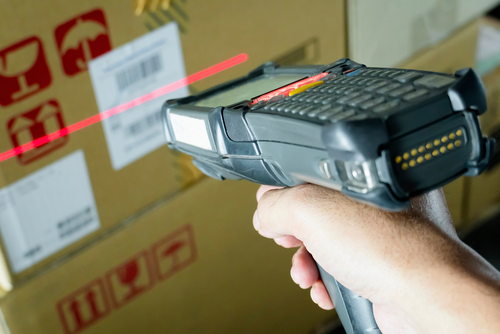
As of Jan. 1, 2021, all international mail coming into the United States will have to provide Advance Electronic Data (AED) for added detection measures as part of a law designed to help reduce the supply of opioids shipped into the United States through the U.S. Postal Service. But federal agencies have failed to meet legal requirements, which could leave hundreds of thousands of international packages in limbo.
At a congressional hearing this week, members of the U.S. Senate Permanent Subcommittee on Investigations lambasted representatives from the U.S. Department of State, U.S. Postal Service (USPS) and U.S. Customs and Border Protection (CBP) for their collective failures to follow through on requirements made under the 2018 STOP Act. STOP, or the Synthetics Trafficking and Overdose Prevention Act, was a bill introduced by chairman and U.S. Sen. Rob Portman (R-OH) and signed into law in 2018. It required federal agencies to close a loophole exploited by drug traffickers that send synthetic drugs like fentanyl from China to the U.S. through the USPS.
“More than 71,000 people died from drug overdoses in 2019,” U.S. Sen. Thomas Carper (D-DE) said. “Preliminary reports indicate that we’ll surpass that total in 2020.”
A bipartisan report from 2018 showed that online drug dealers in China had realized that international mail shipped through the USPS escaped extra detection layers, particularly AED, required of other mail services. As a result, China became the top shipper of fentanyl to the U.S., a major concern for lawmakers given that fentanyl remains the top drug killer.
“Our own federal government was complicit in providing this poison into our communities,” Portman said, in his opening statement.
But while the STOP Act required that all packages coming into the U.S. must have AED by 2021, and several other nations, including in the European Union, followed suit, U.S. agencies failed to meet preparation deadlines year after year. The subcommittee meeting thus became a fact-finding mission of why and how this had happened. Because deadlines weren’t met, the subcommittee now estimates as many as 150,000 packages a day could have to be turned away or destroyed because of agency failures to adapt.
While none of the agencies called to account attempted to deflect blame for this fact, they did attempt to paint a clearer picture of the situation.
“Having the data to analyze this flow of parcels is now critical for postal authorities everywhere in the world,” said Eric Green, director of specialized and technical agencies at the Department of State’s Bureau of International Organizational Affairs. “In short, AED and the accompanying infrastructure is essential for security and global commerce today. Despite this imperative, there is a gap between requirements and capabilities of many countries. As a result, many countries’ mail flows will likely be disrupted because they are not able to meet the requirements of AEP under the STOP Act.”
The rise of email over the last few decades has caused postal mail volumes to plummet even as package shipping has skyrocketed. Portman estimated that some 500 million packages enter the U.S. each year. The STOP Act sought to assess volume, risk and capacity of sending countries while ramping up systems to meet AED demands. And Green attested that many countries still face challenges to meet those demands. While China was required to provide AED on an accelerated basis and has made major headway, others among the 192 members of the Universal Postal Union have not fared so well.
When pressed as to what countries still don’t have the technical capacity or ability to transmit data required for AED, Thomas Overacker, executive director of cargo and conveyance security at the CBP’s Office of Field Operations, said the number was high.
“We have arrived at a preliminary list of countries that would be eligible for waivers. I believe at this time the number is 136,” Overacker said.
He added that these nations represented those of low volume and would likely have little overall impact on the larger system. The largest countries still account for the overwhelming bulk of packages sent and received, he claimed. Yet based on the figures presented, those low volume countries still represent around 15-20 percent of expected international packages.
While the waiver process could help some of these move forward, it would not help them all. If the volume was at least manageable, according to Overacker, agents could still move forward to mitigate package risk through enhanced scanning, canines or physical inspections, but that would be dependent on day-to-day decisions.
“If inbound shipments are not accompanied by AED, we face the prospect of disrupting inbound mail,” Robert Cintron, vice president of logistics for the USPS, said. “Absent alternatives, non-compliant shipments will be refused.”
Since 2017, AED use has increased by 41 percentage points, according to Cintron, while Overacker noted that CBP is finalizing waivers for low-risk countries. The State Department has been working with other countries to provide training and seminars. The USPS will collect fees and give a percentage to CBP for its work on these efforts, but the overall process of implementation is still held up in bureaucratic review and the USPS was unable to provide lawmakers with an idea of cost for full compliance with the STOP Act.
While Overacker and Cintron both expressed hope for progress in the remaining weeks of the year, Portman took them to task for relying on hope as a strategy.
“We find ourselves in a really difficult situation because the law wasn’t complied with as required,” Portman said.




